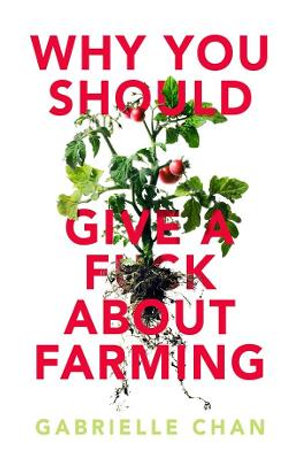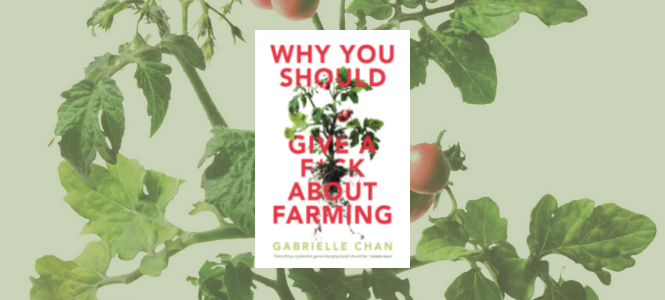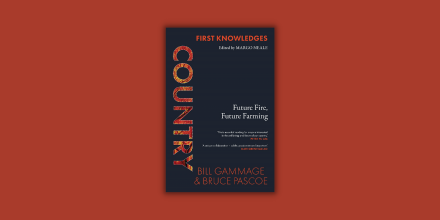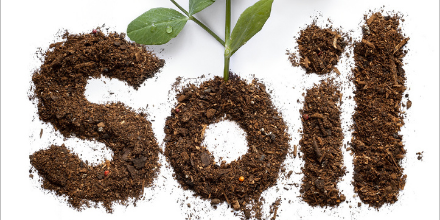Gabrielle Chan has been a journalist for more than 30 years. She has been a political journalist and politics live blogger at Guardian Australia since 2013. Prior to that she worked at The Australian, ABC radio, The Daily Telegraph, in local newspapers and politics. Her book, Rusted Off, draws conclusions about the current state of our rural political representation, the gap between city and country and how to bridge it. Now, Gabrielle Chan is back with a new book interrogating some of those same themes: Why You Should Give a F*ck About Farming.
Today, Gabrielle Chan is on the blog to answer our Ten Terrifying Questions! Read on …
1. To begin with why don’t you tell us a little bit about yourself – where were you born? Raised? Schooled?
Born in Waverley Hospital, Sydney, raised in Coogee and Belrose, schooled at Davidson High and Monte Sant Angelo, Arts/Asian studies degree from Uni of New England.
2. What did you want to be when you were twelve, eighteen and thirty? And why?
I was a surfie chick so I wanted to be the stereotypical marine biologist at 12, then totally confused at 18 at then hit on journalism at uni.
3. What strongly held belief did you have at eighteen that you don’t have now?
That rural people and communities are not important. Moving outside a city allowed me to see the error of my ways.
4. What are three works of art – this could be a book, painting, piece of music, film, etc – that influenced your development as a writer?
Too many to name. The ones I come back to are:
Grapes of Wrath by John Steinbeck for its political, economic and writing rigour
Wake In Fright, the movie.
The Heart is a Lonely Hunter by Carson McCullers
The Ballad of the Sad Cafe, McCullers
Hard Times by Dickens ( I love Gradgrind)
Don Watson’s The Bush, plus anything else he writes.
Leonard Cohen, The Cure … though I am not as melancholic as I sound.
5. Considering the many artistic forms out there, what appeals to you about writing non-fiction?
Facts provide the guide rail within which to push the boundaries of story telling. I curse facts and I am dependent on them at the same time. Non-fiction is like drawing the boundary fence and then working out how you can escape.
‘The way we interact with the natural world is a set of value judgements for both farmers and eaters who buy their produce. So the question for us is not how to feed ourselves but how to feed ourselves without harming our beautiful continent.’
6. Please tell us about your latest book!
Why You Should Give a F*ck About Farming pulls the thread of farm life to discover the political, economic, environmental and social pressures on farming.
I wanted readers to understand farming both contributes to and is endangered by the biggest existential threats of our time: climate change, water shortages, soil loss, energy production, natural disasters, zoonotic diseases, population displacement and geopolitical trade wars. In other words, the world’s problems are major problems for farming like no other industry.
But the way we interact with the natural world is a set of value judgements for both farmers and eaters who buy their produce. So the question for us is not how to feed ourselves but how to feed ourselves without harming our beautiful continent. How do we design a system that can make use of nature’s gifts with the smallest possible footprint and a living for farmers. Because then, Australia would hand on the greatest gift to our grandchildren.
7. What do you hope people take away with them after reading your work?
I hope farmers and eaters understand that the current system means the only way most farmers can get a pay rise is to make cheap food cheaper. At the same time, expectations are rising that all land managers improve their environment. This cost is not covered in the current price of food.
I hope eaters understand that land and food production ownership is changing away from small to mid-sized family farms towards global companies and corporatised families and that will further hollow out rural communities.
I hope all readers understand there are no right and wrong answers here. But whatever answer Australia lands on, it needs more interconnected government policy to ensure land and human communities get more robust.
8. Who do you most admire in the writing world and why?
It’s hard to narrow this down. I admire a lot of writers for different reasons but I keep coming back to writers who can challenge the status quo while not alienating the reader.
9. Many artists set themselves very ambitious goals. What are yours?
To keep honing my craft, cutting unnecessary words and providing clarity in complex human stories while drawing in the reader.
10. Do you have any advice for aspiring writers?
Writing requires work and ideas don’t come from divine inspiration. Ideas come when you are forced to confront the work. Bad drafts can turn into good drafts but nothing can come from nothing. Stick to it.
Thank you for playing!
—Why You Should Give a F*ck About Farming by Gabrielle Chan (Penguin Books Australia) is out now.

Why You Should Give a F*ck About Farming
There is no farmers and others. If you eat or wear clothes, the decisions you make influence farming. ‘Eaters will be the ultimate arbiter of where and how food is grown and how the land is cared for … We all have a stake in the future of food and farming. I am going to show you why.’
Farming sits at the intersection of the world’s biggest challenges around climate change, soil, water, energy, natural disasters and zoonotic diseases. Yet Australia has no national food policy. No national agriculture strategy...







 Read an extract from Country: Future Fire, Future Farming
Read an extract from Country: Future Fire, Future Farming  Read a Q&A with Annie Smithers | Recipe for a Kinder Life
Read a Q&A with Annie Smithers | Recipe for a Kinder Life  REVIEW: Soil by Matthew Evans
REVIEW: Soil by Matthew Evans
Comments
No comments